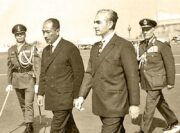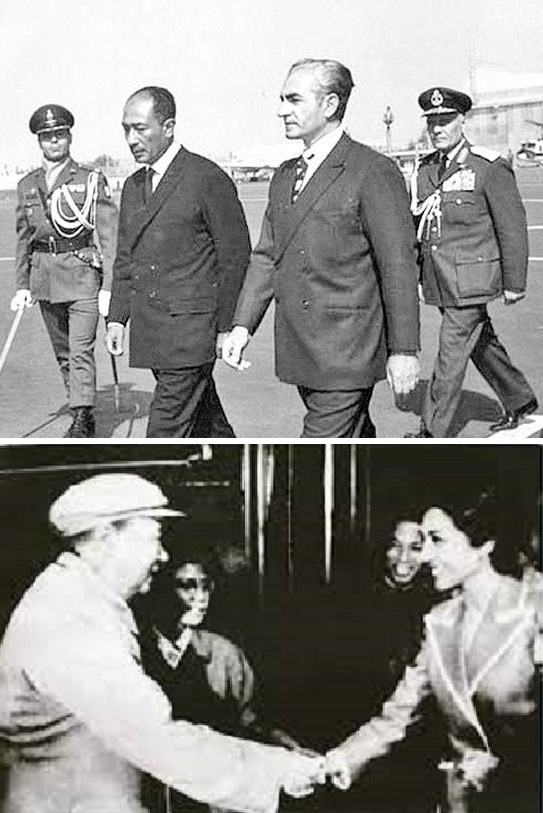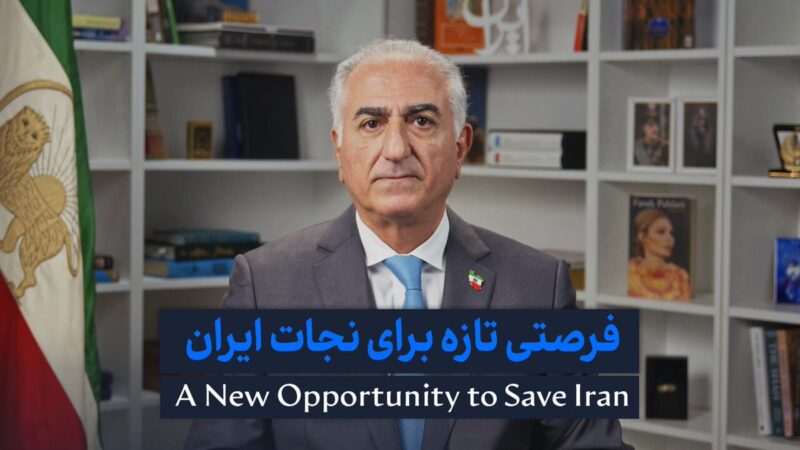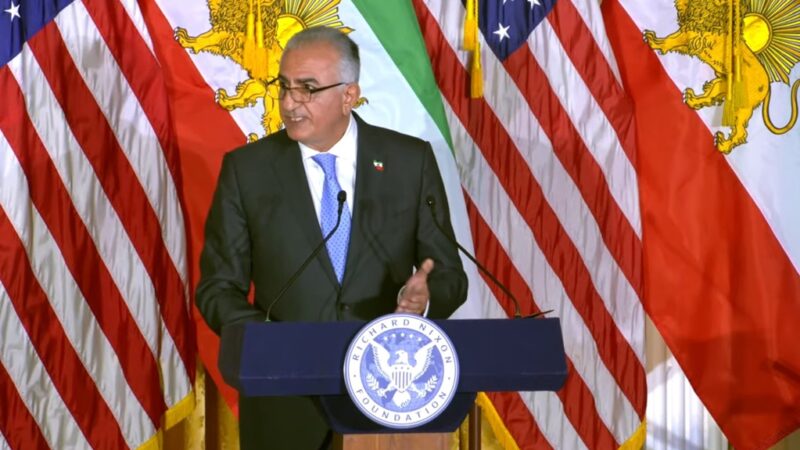The Shah of Iran, a master of global diplomacy

Regional dynamics and historical diplomacy:

1 – The Camp David Accords:
The role of Mohammad Reza Shah Pahlavi, the last Shah of Iran, in the peace between Egypt and Israel is a fascinating intersection of political intelligence, regional dynamics, and historical diplomacy. Mohammad Reza Shah Pahlavi played a behind-the-scenes role in the Camp David Accords, a historic peace agreement between Egypt and Israel brokered by U.S. President Jimmy Carter in 1978. This agreement laid the foundation for a lasting peace between the two nations and reshaped the geopolitics of the Middle East.
Historical Context:
During the 1970s, the Middle East was marked by tensions, conflicts, and long-standing hostilities. Egypt and Israel were no exception. The two nations had fought in multiple wars, including the Six-Day War in 1967 and the Yom Kippur War in 1973. However, a desire for stability, economic development, and a shift in global dynamics created an opportunity for diplomatic engagement.
Political Intelligence and Strategic Insight:
Mohammad Reza Shah Pahlavi had an astute understanding of the political dynamics in the region. As a powerful and influential leader in the Middle East, he recognized the potential benefits of brokering a peace agreement between Egypt and Israel. He understood that a peaceful resolution could foster stability, enhance economic cooperation, and bolster his own geopolitical standing.
Regional Diplomacy:
The Shah’s close ties with the United States and his strong relationship with Egyptian President Anwar Sadat positioned him as a valuable intermediary. While publicly, the Shah remained relatively discreet about his involvement, he used his diplomatic channels to facilitate communication between the Egyptian and Israeli leaders. His personal relationships with both leaders allowed for confidential discussions and a level of trust that proved pivotal in advancing the peace process.
Supporting the Camp David Accords:
In September 1978, President Jimmy Carter invited Egyptian President Anwar Sadat and Israeli Prime Minister Menachem Begin to the Camp David presidential retreat in Maryland, USA, for negotiations. The Shah provided strategic advice and diplomatic channels, offering insights to both leaders on potential compromises and ways to overcome obstacles. His support helped maintain the momentum of the negotiations and offered an external perspective on the potential benefits of peace.
Legacy and Impact:
The Camp David Accords culminated in the signing of the Egypt-Israel Peace Treaty in 1979, with Egyptian President Sadat and Israeli Prime Minister Begin sharing the Nobel Peace Prize. The treaty led to the normalization of diplomatic and economic relations between the two nations, including the withdrawal of Israeli forces from the Sinai Peninsula. This landmark agreement not only ended decades of hostilities but also set an example for diplomatic resolution in the region.
In summary, Mohammad Reza Shah Pahlavi’s role in the peace between Egypt and Israel exemplifies the intricate web of political intelligence, strategic thinking, and regional diplomacy. His insight into the dynamics of the Middle East, coupled with his diplomatic channels and relationships, contributed to the success of the Camp David Accords. While the peace agreement remains a hallmark of regional stability, the Shah’s involvement also had significant consequences for his own regime and Iran’s future trajectory. This historical episode showcases the intricate interplay of political actors and the lasting impact of their decisions on the course of history.
2 – China’s invitation to the United Nations:
Mohammad Reza Shah Pahlavi’s pivotal Role in China’s United Nations Invitation:
The diplomatic history of the 20th century is replete with instances where geopolitical shifts and realignments reshaped the global order. The establishment of the United Nations (UN) in 1945 introduced a platform for international cooperation and conflict resolution, bringing to the forefront complex questions regarding the representation of nations. This essay explores the pivotal role played by Mohammad Reza Shah Pahlavi in China’s invitation to the United Nations, delving into the geopolitical context, the intricacies of dual representation, and the strategic considerations that underpinned the Shah’s actions.
The United Nations and Representation Dilemmas:
As the Cold War took hold after World War II, the global stage witnessed a contest between the United States and the Soviet Union for ideological and strategic dominance. Within this context, the United Nations emerged as a critical forum for addressing global challenges and conflicts. Central to this forum was the issue of representation, a contentious matter epitomized by China’s fractured political landscape. With the People’s Republic of China (PRC) and the Republic of China (ROC) both vying for recognition, the question of which entity should hold China’s seat at the UN was a subject of international debate.
China’s Dual Representation Predicament:
China’s representation dichotomy stemmed from the Chinese Civil War, a conflict between the Chinese Nationalist Party (Kuomintang) led by Chiang Kai-shek and the Chinese Communist Party led by Mao Zedong. By the time of the UN’s inception, the PRC had established its authority on the mainland, while the ROC had retreated to Taiwan, each claiming to be the legitimate Chinese government. This fracture resulted in the UN seat being held by the ROC, an arrangement that proved increasingly untenable as the PRC gained economic, military, and diplomatic clout on the global stage.
The Geopolitical Significance of Mohammad Reza Shah Pahlavi:
Amid these intricate diplomatic maneuvers, the role of Mohammad Reza Shah Pahlavi of Iran emerges as a pivotal one. The Shah’s geopolitical significance was underscored by Iran’s strategic importance in the Middle East and its substantial oil reserves, elements that positioned the Shah as an influential player in international politics.
Strategic Calculations and Pragmatism:
The Shah astutely recognized the shifting tides of international politics. The PRC’s ascent as a global power, along with its expanding diplomatic recognition, signaled a paradigm shift in the global balance of power. In light of this, the Shah pursued a strategic repositioning, departing from his nation’s support of the isolated ROC on Taiwan. This recalibration aligned Iran with the emerging superpower, serving to enhance Iran’s international stature and positioning it as a diplomatic broker.
Diplomatic Prowess and the Pursuit of Recognition:
The Shah’s diplomatic endeavors were characterized by calculated interactions with key global leaders. These diplomatic engagements were centered on advocating for the recognition of the PRC as the legitimate representative of China at the UN. The Shah’s involvement in these discussions reflected his understanding of the nuanced dynamics at play and his capacity to leverage Iran’s geopolitical influence.
Culmination and Historical Impact:
The culmination of these diplomatic undertakings materialized in 1971 when the United Nations General Assembly adopted Resolution 2758. This resolution recognized the People’s Republic of China as “the only legitimate representative of China to the United Nations” and led to the expulsion of the ROC’s representatives. This historic moment marked a significant realignment in global power dynamics and showcased the effectiveness of diplomatic efforts led by key players like the Shah.
Legacy and Lessons Learned:
The Shah’s pivotal role in China’s invitation to the United Nations resonates as a case study in the intricate interplay of history, politics, and strategy. His capacity to discern the evolving global landscape and his willingness to recalibrate Iran’s diplomatic stance underscores the critical importance of adapting to changing geopolitical realities. The Shah’s actions solidified his legacy as a pragmatic and visionary diplomat, whose strategic decisions contributed to Iran’s reputation as an astute player on the international stage.
Conclusion: The narrative of Mohammad Reza Shah Pahlavi’s instrumental role in China’s invitation to the United Nations encapsulates the fusion of history, politics, and strategy. It serves as a testament to how astute leadership, strategic acumen, and a nuanced understanding of global dynamics can influence seminal events. The episode stands as a testament to the enduring lessons of diplomacy and international relations, aligning seamlessly with history, politics, and strategy. Source: Insights Into Political Intelligence: Navigating the Nexus of Politics, Psychology and Strategy, by Raghu Kondori

